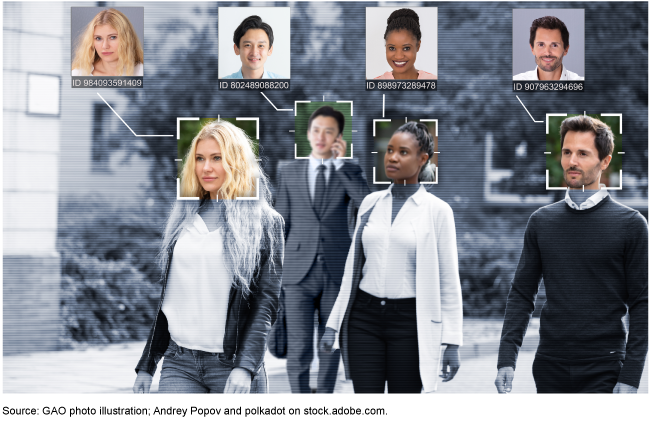|
A recent Government Accountability Office report sheds light on the uses of facial recognition technology by federal law enforcement agencies.
The report details how, despite pushback from manufacturers and civil liberties advocates, the use of facial recognition software has become increasingly widespread while being subject to little oversight. The first to recognize this were major technology companies that provide facial recognition support to law enforcement. The GAO’s recent report highlights exactly why these companies were right to be skeptical of their customers. GAO reports that six federal law enforcement agencies used facial recognition to surveil protestors following George Floyd’s death. While the agencies claim they were using the software only to identify individuals violating the law, the lack of meaningful oversight should give any civil libertarian pause. According to GAO’s report, at least 20 federal agencies that employ law enforcement officers use facial recognition software. And at least 15 of these agencies reported using non-federal systems. In many cases, agency leadership is unaware of the full extent of facial recognition utilization and the use of non-federal systems. While facial recognition exists in a constitutional gray area, this fast and loose conduct by federal law enforcement is clearly cause for concern. The problems with facial recognition technology — both known and predicted — necessitate strict and public guidelines for its use backed up by consistent oversight. This is especially true when facial recognition is used against individuals who might be engaging in activities protected by the First Amendment. Perhaps the federal agents who used it following the death of Floyd George really were trying to identify the instigators of looting and other violence. Then again, maybe they were trying to identify Americans peacefully engaging in activities protected by the First Amendment. There’s no clear way to know what the intentions of an individual federal agent are. That is why guardrails and oversight are so important. And it explains the healthy skepticism of groups like PPSA toward the collection and tracking of the identities of individual Americans. Comments are closed.
|
Categories
All
|


 RSS Feed
RSS Feed